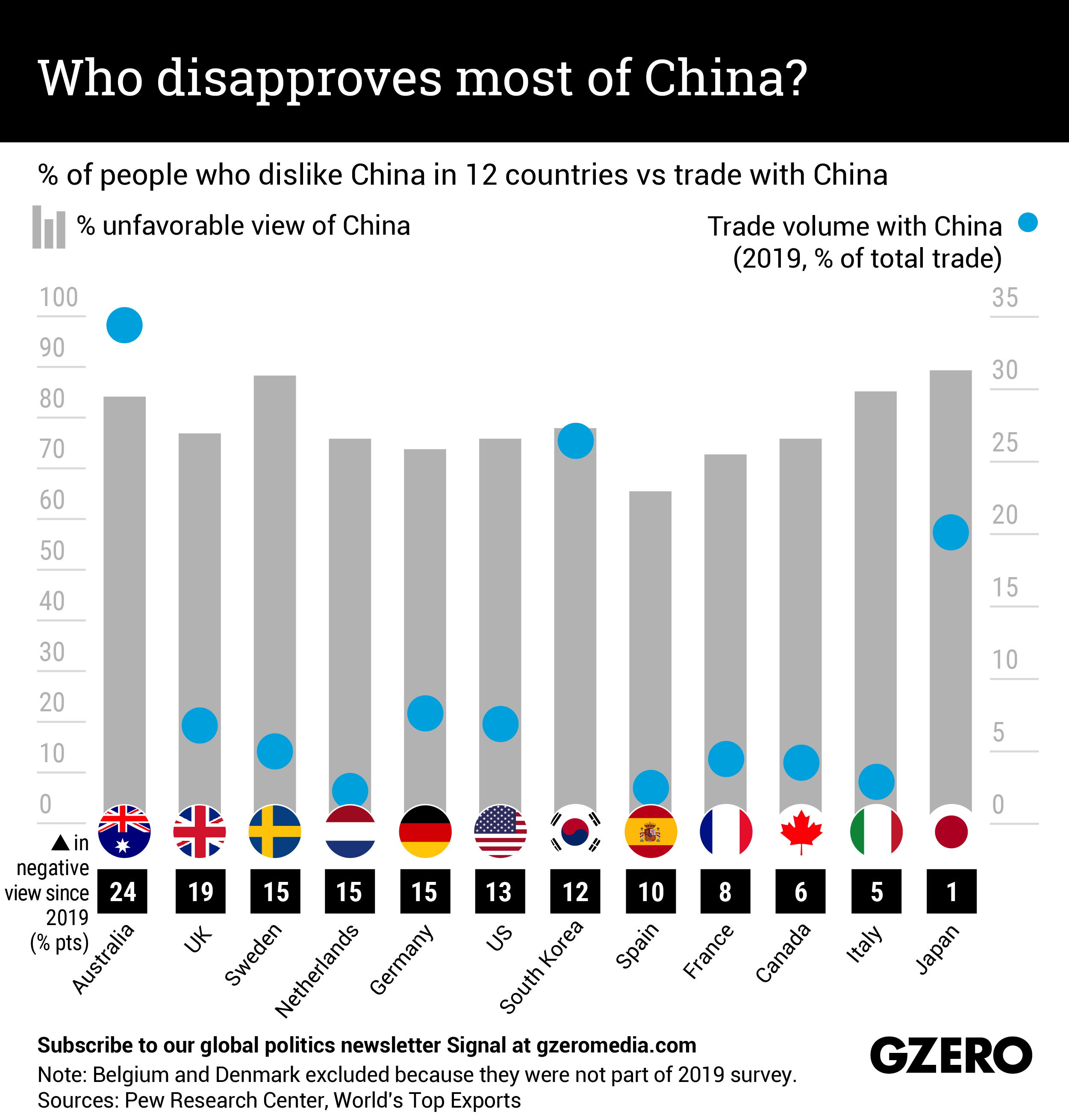The Graphic Truth: Who disapproves most of China?
October 08, 2020
Perceptions of China across most of the developed world have been on a steady decline in recent years — and plummeted this year due to China's handling of the coronavirus pandemic and Beijing's aggressive policies in Hong Kong, the South China Sea, and Xinjiang. In a recent Pew survey, a majority of respondents in a group of 14 countries had an unfavorable opinion of China, and their opinion was more negative than a year ago. Australians' disapproval of China jumped 24 points since 2019, while Americans' increased 13 points amid growing US-China political tensions. We take a look at how many people in 12 of the surveyed countries dislike China, and compare it to their trade volume with China as a percentage of GDP.
